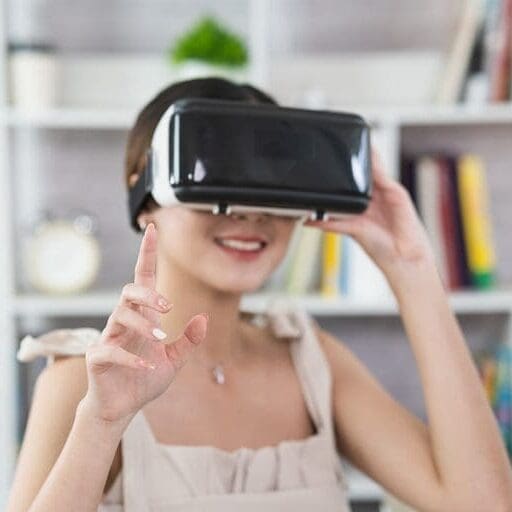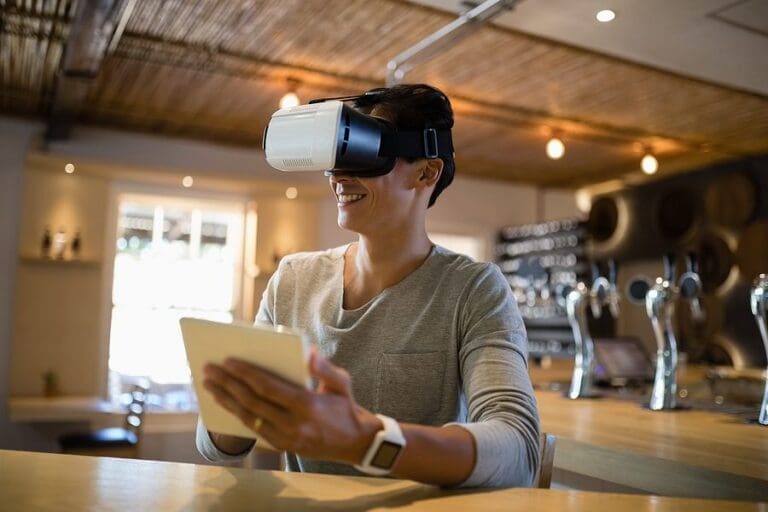![]() From being announced in June 2021 to being estimated worth $800 million by 2024 by Bloomberg, the metaverse has rocked the world.
From being announced in June 2021 to being estimated worth $800 million by 2024 by Bloomberg, the metaverse has rocked the world.
This principle idea – a fully immersive and persistent 3D digital environment – is not a new invention. It’s been around since the ‘90s. However, it’s only now that it’s beginning to take form.
Everyone everywhere is asking what the metaverse means not only for them but also for society. Each industry is scrambling to see how they can jump on this new concept that is destined to change the world.
This article will address how the metaverse will change the hotel industry from attracting guests to assessing how it can enrich their experience and more.
Don’t panic
The first point that needs to be addressed is that the metaverse will not make traditional travel and thereby the hotel industry obsolete. Don’t panic.
Research shows that people go on vacation – particularly nature vacations – for a sense of escapism and distraction, combined with digital detoxing. In other words, some people will be going on holiday to escape the metaverse!
Window shopping
The hotel industry has quickly realised that it can use the metaverse to sell rooms. Whereas before, guests only had photos, copy, and reviews to go on. Now, they’ll have an extra, more exciting option: immersive 3D tours
This isn’t far-fetched at all. Consider. Imagine wandering through a hotel lobby, the rooms, the spa, comparing and contrasting prospective hotels and attractions in 3D. This is what the future of holiday planning and window shopping will look like.
Upselling
What hoteliers also might want to take advantage of is upselling. Say you have a guest that already has a booking with you. An email with a polite hello and an offer to explore their other rooms could pique their curiosity and close some conversions. Perhaps you could automate a discount when they move to exit the tour?
Better events
As we all know, the hotel industry doesn’t just turn a profit on sleep alone. Events are also a big part of the business.
The corporate event Industry is leaping onto the metaverse in a big way. The boom in virtual and hybrid events due to Covid-19 won’t disappear after the virus is consigned to history. The promise of the metaverse could smooth over major issues these events have.
Making your event spaces metaverse compatible will make it a much more attractive location. And what about family and friends who can’t make a wedding, parties, performances, any event you can think of. Hotels can now make them accessible to anyone anywhere.
‘It all comes with the room’
Hotel guests love good amenities – TV’s, WiFi, good showers, gyms, you name it. If you can offer equipment with metaverse compatibility, it could be a selling point that seals a reservation.
As well as making guests happy on-site, it’s a point of pride for hoteliers, the kudos of providing metaverse with the room as standard.
Saving on labour costs
The metaverse could also lead to a reduction in labour costs. By moving the front end booking office to the virtual realm – or in other words, further automation of the booking process – will go some way to solving the labour costs the industry is currently going through.
The new passport stamp: NFT collectables
Everyone likes free things. Everyone also loves keep-sakes to remember a special occasion, from stamps in the passport to postcards, photos, and fridge magnets.
If hotels could provide NFT’s to commemorate guest stays, they could be on the verge of a totally new and colossal selling point to travellers who want something special to remember.
This is not unprecedented in the hotel industry either. The Marriot group released 3 NFT’s in a competition as part of their ‘Power of Travel’ campaign to announce their arrival into the metaverse.
Virtual itinerary
The hotel can also use the metaverse to improve the experience of the city or town they’re in.
Let’s consider that 8 out of 10 Gen-Z and Millennial travellers emphasise the desire for a unique experience.
This leaves a gap in the market for hotels to offer virtual itineraries where they can flaunt their expertise on local landmarks, museums, historical sights and so on. This tailored service could be vital in attracting discerning clients of the future.
Wrapping up
So despite its infancy, the metaverse has already opened some avenues to the hotel industry, from attracting and up-selling guests to improving events at hotel locations and improving the guest experience. As for what other unknown opportunities pop up in the future, we’ll just have to wait and see with bated breath!
About the author
Harry Prince has been the Creative Content Manager at Spacehuntr since 2020. With a keen eye for SEO and strategy, his areas of interest include event technology, trends, marketing, catering, architecture, and interior design.


















